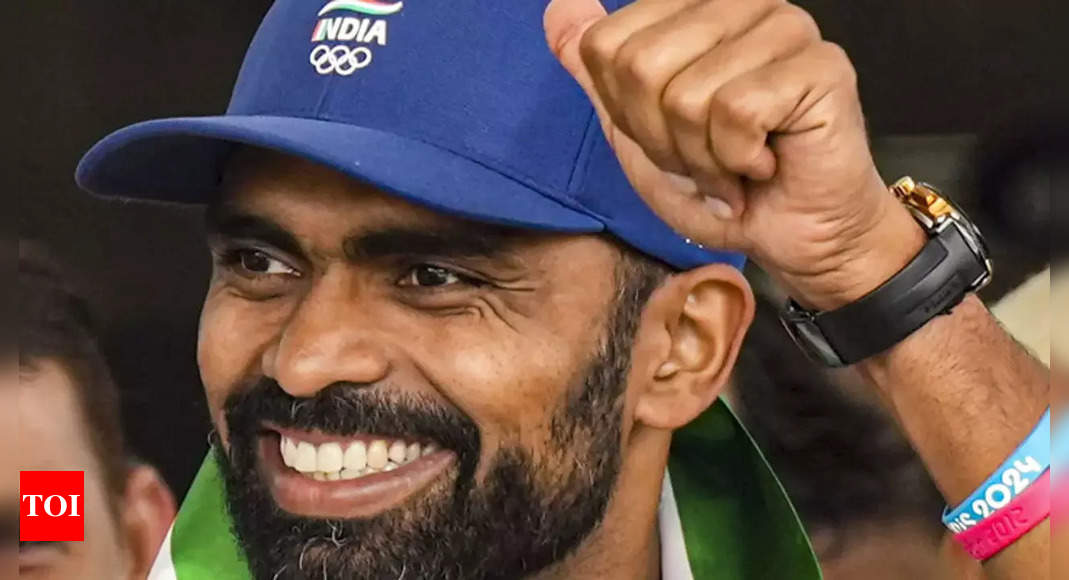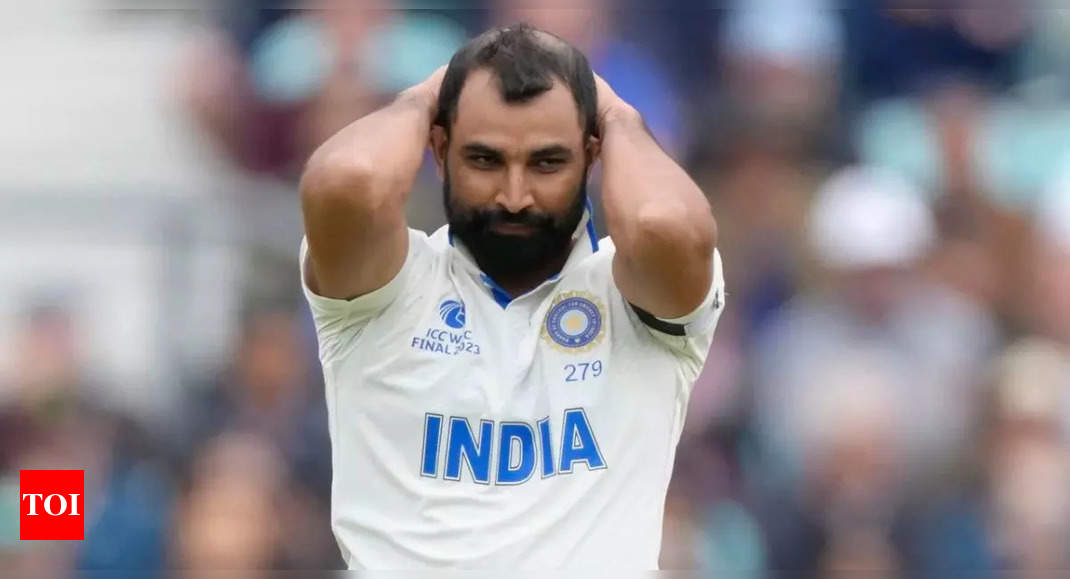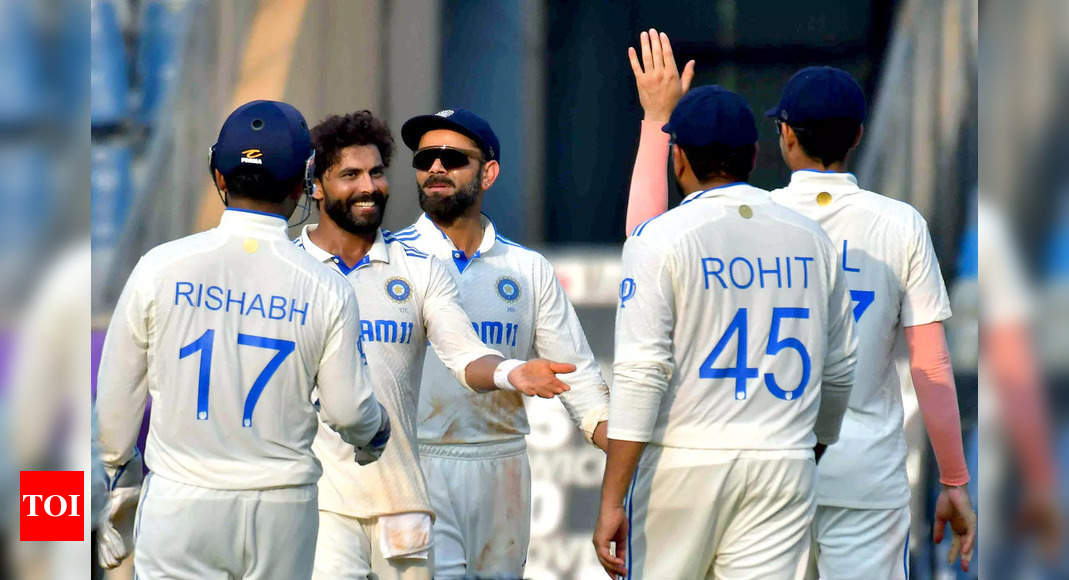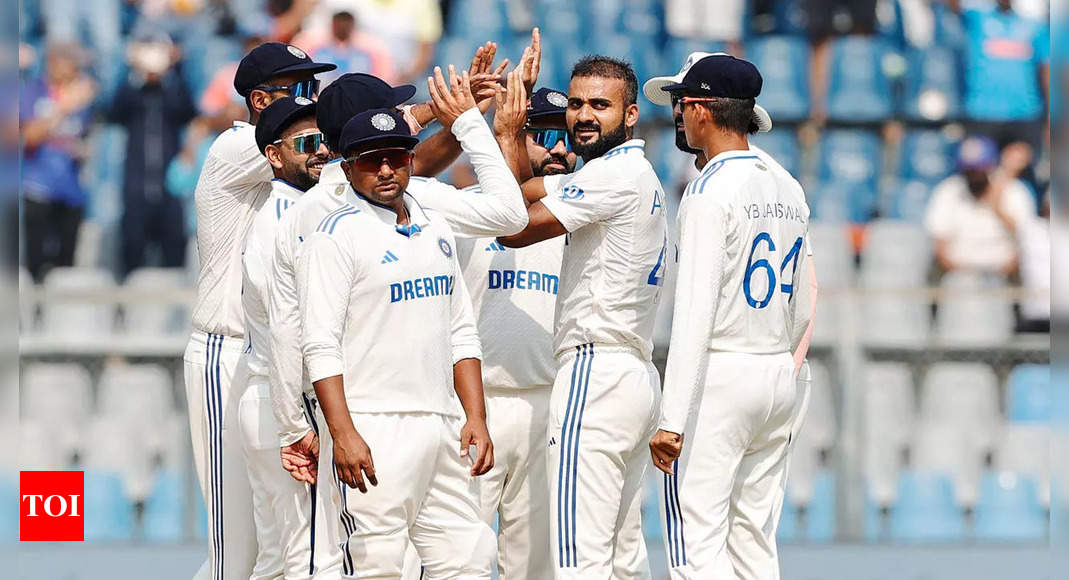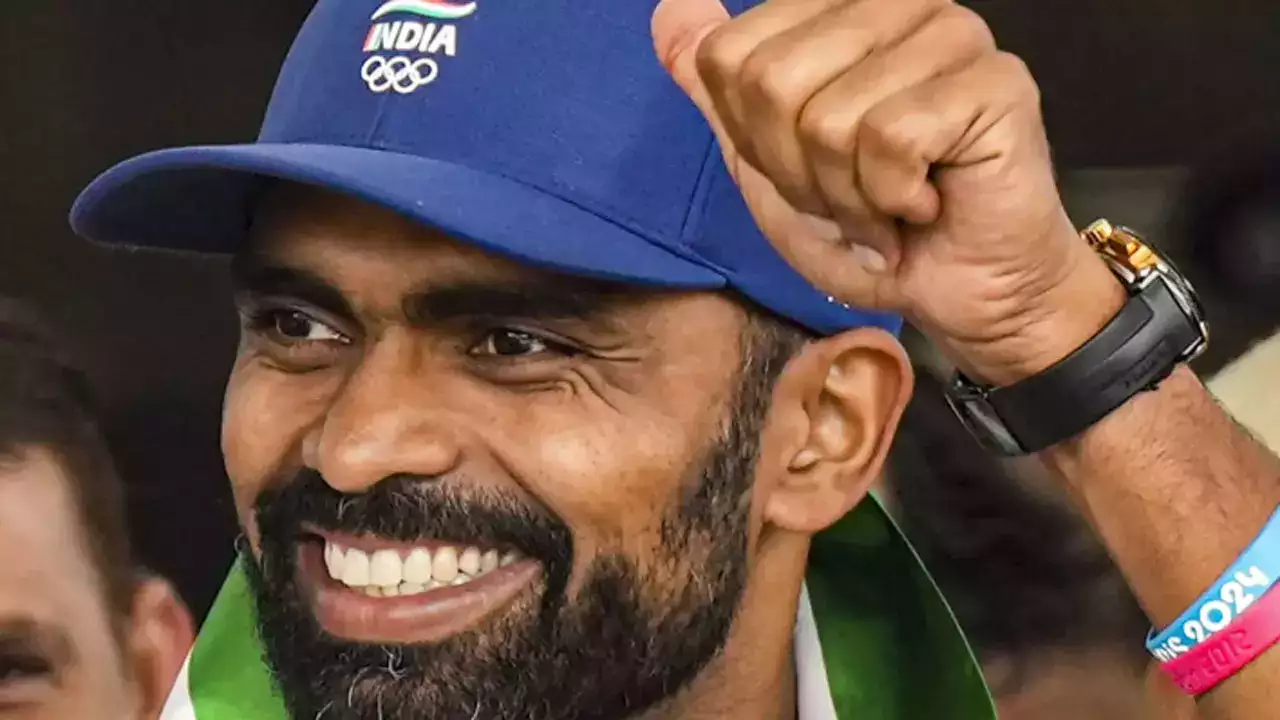
NEW DELHI: Goalkeeping stalwart PR Sreejesh, who retired after the Paris Games on Thursday emphasized the need for India to reduce its reliance on penalty corners and focus more on scoring field goals to win Olympic medals consistently.
India, which scored 15 goals and conceded 12 en-route to their second consecutive Olympic bronze medal, had nine goals from penalty corners and only three from field goals.
Sreejesh noted that Indian forwards often aim to win penalty corners because of their proficiency, but he believes the strategy needs to change for long-term success.
“Most the times, when the forwards are getting into the circle the first thing that comes into their mind is to go for a penalty corner because that’s what we are good at. I am not saying that our forwards are not trying to score field goals,” Sreejesh, who retired at the end of the Games, told PTI.
Comparing India’s performance with that of the gold-winning Netherlands and silver-medalist Germany, Sreejesh pointed out that these teams scored 14 and 15 field goals respectively, while even the fourth-place finishers, Spain, managed 10 field goals.
Overall, the men’s competition in Paris saw 78 field goals and 62 goals from short corners.
A penalty corner is often awarded for fouls within the striking circle, even if the foul doesn’t stop a goal-scoring move. Common causes include the ball touching a player’s feet in the circle.
While India has been effective at converting these opportunities, Sreejesh believes the team must adapt to enhance their overall scoring methods.
“…when you have better options to score from penalty corners, why should we waste our opportunities? But if we are thinking about the next level for the Indian hockey team, if we wanted to win Olympic medals, we need to score more field goals as well because defence has got some limitations,” he said.
“I shouldn’t say this but we are not Germany who can defend one goal for 60 minutes because they are disciplined, they are cultured. The style and strategy is different than us.
“I strongly believe that we made some mistakes and conceded a few goals but we need to sharpen our forwards to score more goals so that the defence gets more comfort,” the 36-year-old added.
Not easy to be in league of greats
With two Olympic bronze, two Asian Games gold and a bronze, two Champions Trophy titles and as many Commonwealth Games silver medals in his kitty, Sreejesh has become a legend of Indian hockey, joining the likes of Major Dhyan Chand, Balbir Singh Sr, and Dhanraj Pillay among others.
Sreejesh said it is not easy for any player to be in that elite league.
“It is not easy to be in that league. When you are getting into that senior role, when you are getting into limelight, it gets higher because your responsibility then is not only to perform for your country,” he said.
He said the elevation to that elite status is a huge responsibility.
“Your responsibility is also towards the juniors, to develop them, to support the coaching,” he said.
“You are going to be a mediator between the players and the coaching staff. You are getting into the shoes of a spokesperson for the team, you are becoming an ambassador for your country. So what all things you do should be an example.”
India, which scored 15 goals and conceded 12 en-route to their second consecutive Olympic bronze medal, had nine goals from penalty corners and only three from field goals.
Sreejesh noted that Indian forwards often aim to win penalty corners because of their proficiency, but he believes the strategy needs to change for long-term success.
“Most the times, when the forwards are getting into the circle the first thing that comes into their mind is to go for a penalty corner because that’s what we are good at. I am not saying that our forwards are not trying to score field goals,” Sreejesh, who retired at the end of the Games, told PTI.
Comparing India’s performance with that of the gold-winning Netherlands and silver-medalist Germany, Sreejesh pointed out that these teams scored 14 and 15 field goals respectively, while even the fourth-place finishers, Spain, managed 10 field goals.
Overall, the men’s competition in Paris saw 78 field goals and 62 goals from short corners.
A penalty corner is often awarded for fouls within the striking circle, even if the foul doesn’t stop a goal-scoring move. Common causes include the ball touching a player’s feet in the circle.
While India has been effective at converting these opportunities, Sreejesh believes the team must adapt to enhance their overall scoring methods.
“…when you have better options to score from penalty corners, why should we waste our opportunities? But if we are thinking about the next level for the Indian hockey team, if we wanted to win Olympic medals, we need to score more field goals as well because defence has got some limitations,” he said.
“I shouldn’t say this but we are not Germany who can defend one goal for 60 minutes because they are disciplined, they are cultured. The style and strategy is different than us.
“I strongly believe that we made some mistakes and conceded a few goals but we need to sharpen our forwards to score more goals so that the defence gets more comfort,” the 36-year-old added.
Not easy to be in league of greats
With two Olympic bronze, two Asian Games gold and a bronze, two Champions Trophy titles and as many Commonwealth Games silver medals in his kitty, Sreejesh has become a legend of Indian hockey, joining the likes of Major Dhyan Chand, Balbir Singh Sr, and Dhanraj Pillay among others.
Sreejesh said it is not easy for any player to be in that elite league.
“It is not easy to be in that league. When you are getting into that senior role, when you are getting into limelight, it gets higher because your responsibility then is not only to perform for your country,” he said.
He said the elevation to that elite status is a huge responsibility.
“Your responsibility is also towards the juniors, to develop them, to support the coaching,” he said.
“You are going to be a mediator between the players and the coaching staff. You are getting into the shoes of a spokesperson for the team, you are becoming an ambassador for your country. So what all things you do should be an example.”
